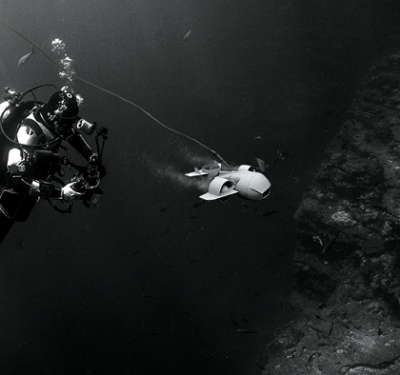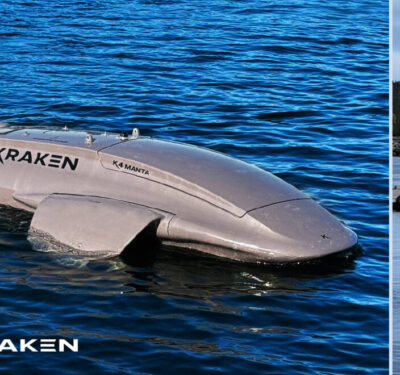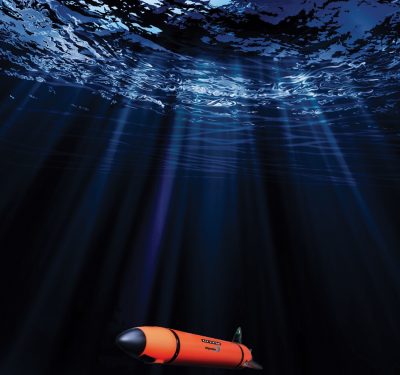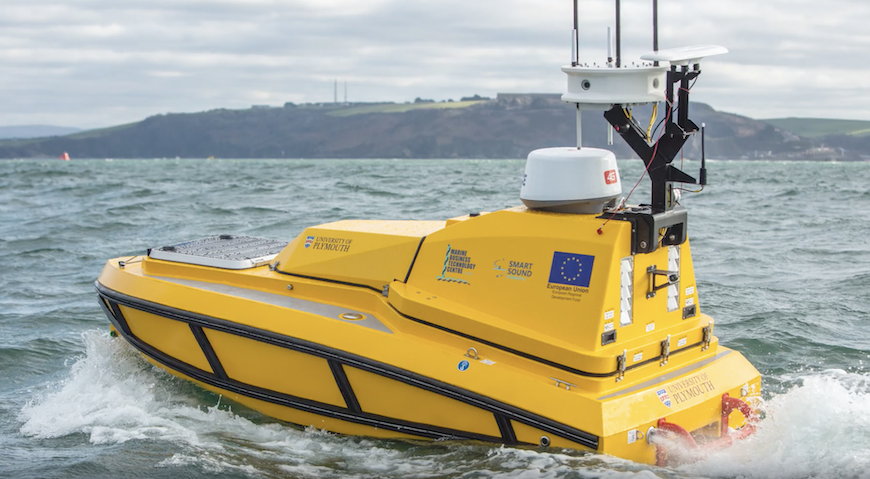
Photo Courtesy University of Plymouth
An autonomous boat cruises the coastal waters off Devon, UK, seeking employment in research and development. Cetus, a C-Worker 4 unmanned surface vehicle, belongs to the University of Plymouth, which has placed it at the disposal of staff, students and local businesses to conduct innovative marine research within the Smart Sound Plymouth offshore proving area.
Measuring 4.17 meters from bow to stern and 1.58 meters across the beam, she weighs 680kg. Cetus was built by L3Harris Technologies, a product of its 2018 acquisition of ASV Global. She is named after a mythological Greek sea monster and carries on a naval naming tradition denoting vessels unafraid of the sea.
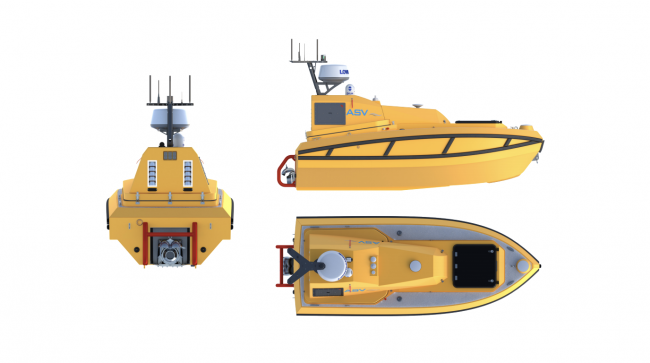
Graphic courtesy L3Harris ASV.
Cetus can travel at seven knots, diesel-powered and driven by a waterjet propulsion system making her ideal for shallow- as well as deep-water surveys. She can stay at sea for up to 48 hours. The smaller of L3Harris’ autonomous surface vehicles (ASV) C-Worker class, she is designed to complete a variety of offshore and inshore survey tasks.
The vehicle’s modular interior can integrate a range of survey payloads. Its control system is ASView for direct, semi-autonomous or autonomous control.
The company lists her potential applications as:
- Marine construction survey, often employing differential GNSS
- Metocean data collection using Acoustic Doppler Current Profiler (ADCP), weather station, water conductivity, temperature, and depth (CTD), with a package of electronic instruments that measure these properties
- Environmental: Passive Acoustic Monitoring (PAM)
- Hydrocarbon detection, skimmers, dispersants
- Seismic support: CTD, ultra-short baseline (USBL), a method of underwater acoustic positioning, PAM, ADCP
- Site survey: multibeam sonar, motion sensors, CTD
- Sidescan sonar, and capable of launching smaller observation-class remotely operated vehicles (ROVs)
- Security and surveillance: cameras, video, infrared sensors
Professor Kevin Jones, Executive Dean of the Faculty of Science and Engineering at the University, said, “This technology has the undoubted potential to be a game changer in the field, enabling us to capture data which can transform our understanding of the oceans and the impact climate change and other factors are having on them.”
“In a way, Cetus a bit of a Goldilocks vessel: it’s just the right size. Some of our manned vessels are quite large, which is useful for some activities, but it increases the cost, and makes it more difficult to deploy in certain circumstances. There are other autonomous systems, but they are smaller, down at the drone level, which means they wouldn’t be capable of certain activities that we can do with this craft. So it’s right in the middle, giving a capability that you don’t have at either end of the spectrum. For us, it completes the set of what we can deploy in almost any circumstances.”
James Fishwich, head of Smart Sound Plymouth at the Plymouth Marine Laboratory, added that “this is a fantastic opportunity for businesses to have access to an autonomous vessel, free of charge, to trial and develop new technologies in how we operate autonomy within a port environment and offshore, and also with new sensors and technologies to make an autonomous platform useful through scientific work, oil and gas, defense.”
The University of Plymouth is also closely involved with the Mayflower Autonomous Ship, a large catamaran scheduled to cross the Atlantic in 2020, completely unmanned.
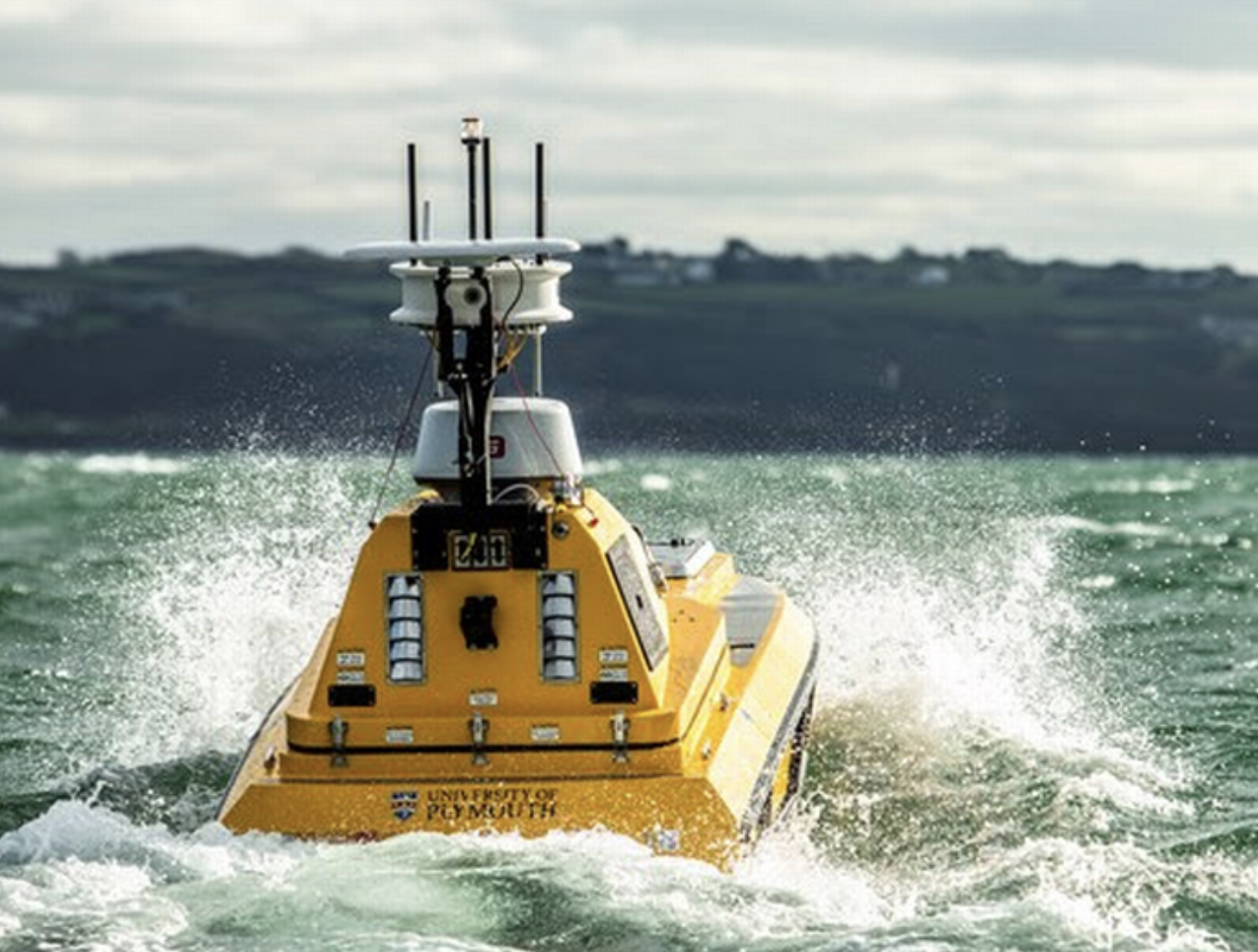
Photo Courtesy University of Plymouth


